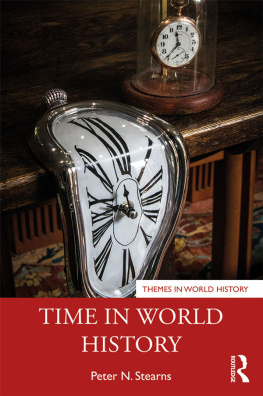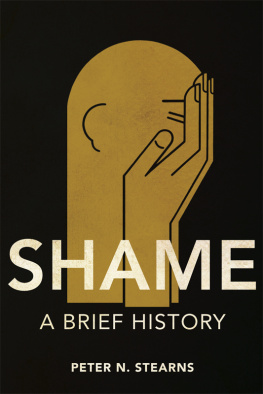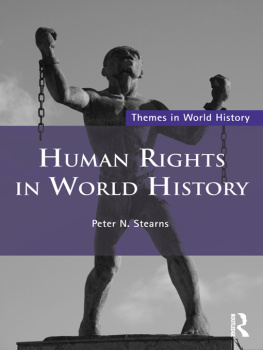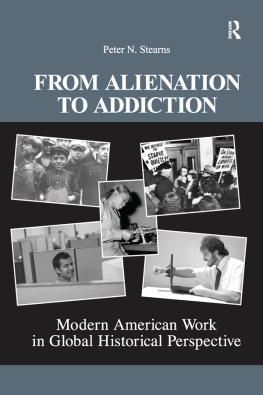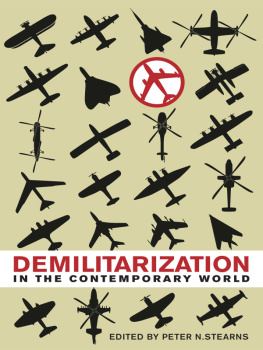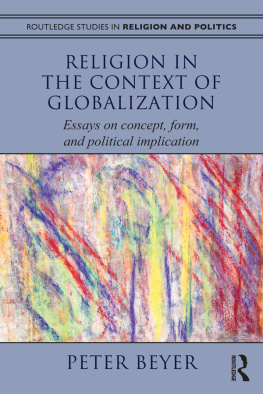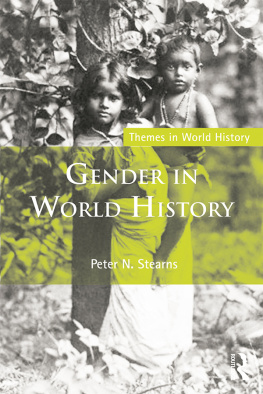Time in World History
In this book, Peter Stearns presents the fascinating concept of time through a global historical lens. Covering both calendrical time and clock time, the volume shows how significant changes in conceptions of time are in world history, as they translate many key historical developments from religion to industrialization, into daily experience.
The book explores why and how early societies became interested in measuring time, as well as explaining the causes and ongoing consequences of the modern sense of time. The author compares different societies and cultures in their attitudes and approaches to time and describes the role of globalization in its development. The volume offers many examples and illustrations to aid readers in their understanding of the advantages and disadvantages of various constructions of time, both in the past and among different groups of people today.
Time in World History will be of interest to students of world history and sociology, introducing readers to historical forces that continue to shape their lives quite directly.
Peter N. Stearns is University Professor of History at George Mason University. He has written widely on issues in world history and regularly teaches courses on various facets of globalization.
Themes in World History
Series editor: Peter N. Stearns
The Themes in World History series offers focused treatment of a range of human experiences and institutions in the world history context. The purpose is to provide serious, if brief, discussions of important topics as additions to textbook coverage and document collections. The treatments will allow students to probe particular facets of the human story in greater depth than textbook coverage allows, and to gain a fuller sense of historians analytical methods and debates in the process. Each topic is handled over time allowing discussions of changes and continuities. Each topic is assessed in terms of a range of different societies and religions allowing comparisons of relevant similarities and differences. Each book in the series helps readers deal with world history in action, evaluating global contexts as they work through some of the key components of human society and human life.
Aging in World History
David G. Troyansky
The Industrial Turn in World History
Peter N. Stearns
Tolerance in World History
Peter N. Stearns
Gender in World History
Peter N. Stearns
Neutrality in World History
Leos Mller
Globalization in World History
Peter N. Stearns
Time in World History
Peter N. Stearns
Time in World History
Peter N. Stearns

First published 2020
by Routledge
52 Vanderbilt Avenue, New York, NY 10017
and by Routledge
2 Park Square, Milton Park, Abingdon, Oxon, OX14 4RN
Routledge is an imprint of the Taylor & Francis Group, an informa business
2020 Taylor & Francis
The right of Peter N. Stearns to be identified as author of this work has been asserted by him in accordance with sections 77 and 78 of the Copyright, Designs and Patents Act 1988.
All rights reserved. No part of this book may be reprinted or reproduced or utilised in any form or by any electronic, mechanical, or other means, now known or hereafter invented, including photocopying and recording, or in any information storage or retrieval system, without permission in writing from the publishers.
Trademark notice: Product or corporate names may be trademarks or registered trademarks, and are used only for identification and explanation without intent to infringe.
Library of Congress Cataloging-in-Publication Data
Names: Stearns, Peter N., author.
Title: Time in world history / Peter N. Stearns.
Description: New York, NY : Routledge, 2020. |
Includes bibliographical references.
Identifiers: LCCN 2019042116 (print) | LCCN 2019042117 (ebook) |
ISBN 9780367434946 (hbk) | ISBN 9780367433215 (pbk) |
ISBN 9781003003656 (ebk) Subjects: LCSH: TimeSocial aspects. |
TimeHistory. | CalendarHistory. | HistoryChronology. Classification:
LCC HM656 .S74 2020 (print) | LCC HM656 (ebook) | DDC 304.2/3709dc23
LC record available at https://lccn.loc.gov/2019042116
LC ebook record available at https://lccn.loc.gov/2019042117
ISBN: 978-0-367-43494-6 (hbk)
ISBN: 978-0-367-43321-5 (pbk)
ISBN: 978-1-003-00365-6 (ebk)
Typeset in Times
by Newgen Publishing UK
For Ferris Raymond Stearns Brooks just in time
Contents
A number of people have helped with this study. A big thanks to Kimberley Smith, at Routledge, who suggested the project in the first place and made me wonder why I had not thought of it; and who supported the book as it progressed. Alexis Frambes helped with the research and manuscript preparation, for which I am really grateful. Several colleagues in history and psychology pointed me toward important existing work: Benedict Carton, Robert Houle, Deborah Stearns, Darrin Campen, Yulia Chentsova, Noralee Frankel, Megan Bell. Again, thanks. Robert Ehrlich and Jack Censer read the manuscript in very timely fashion, with valuable comments; and I also thank the readers of the book proposal. And one final note: I get very excited about a project like this, where I learn a lot of new things and try to assemble them intelligently, and this means I burden my family with some of my enthusiasm. So thanks for patience to a number of my children and grandchildren, and particularly to my wife Donna Kidd.
The woman, a fashion designer, has lived in the Netherlands for a number of years. Originally from India, like her husband and children, she now regards herself as half-Dutch, having adapted, among other things, to language and cooking. When asked (in 2019) what adjustment had been most difficult, she immediately pointed to time. When the Dutch say well meet at 3 oclock, they mean 3 oclock. In India, in contrast, arriving half an hour late for an appointment is totally acceptable, especially when using traffic as an excuse. She also noted how rare it was for Dutch friends to show up unscheduled, whereas in India it was quite common to say I was just in the neighborhood and thought Id stop by. This casualness was another violation of the Dutch sense that life had to be carefully timed and scheduled.
Time is a complex phenomenon. It has its scientific side various aspects of time have been research subjects at least since the early civilizations. It obviously has a technology side, in the vast array of devices that have been invented, and continue to be invented, to keep track of time. But it also has its very human side, as the immigrant story suggests, conveying much about how people organize their lives and their interactions with others.
Most important, for world history, is the fact that time changes. Modern society even in urban India, despite a distinctive culture, is deeply time-conscious. One of the implicit functions of school is to drill a sense of clock time into children, and many will carry this lesson throughout their lives. But this pattern did not always prevail, which is where the history comes in. Figuring out how the meanings and measurements of time have shifted says a great deal about how peoples lives have changed and this gives us some perspectives, as well, on some of the downsides of time-consciousness in contemporary life.

